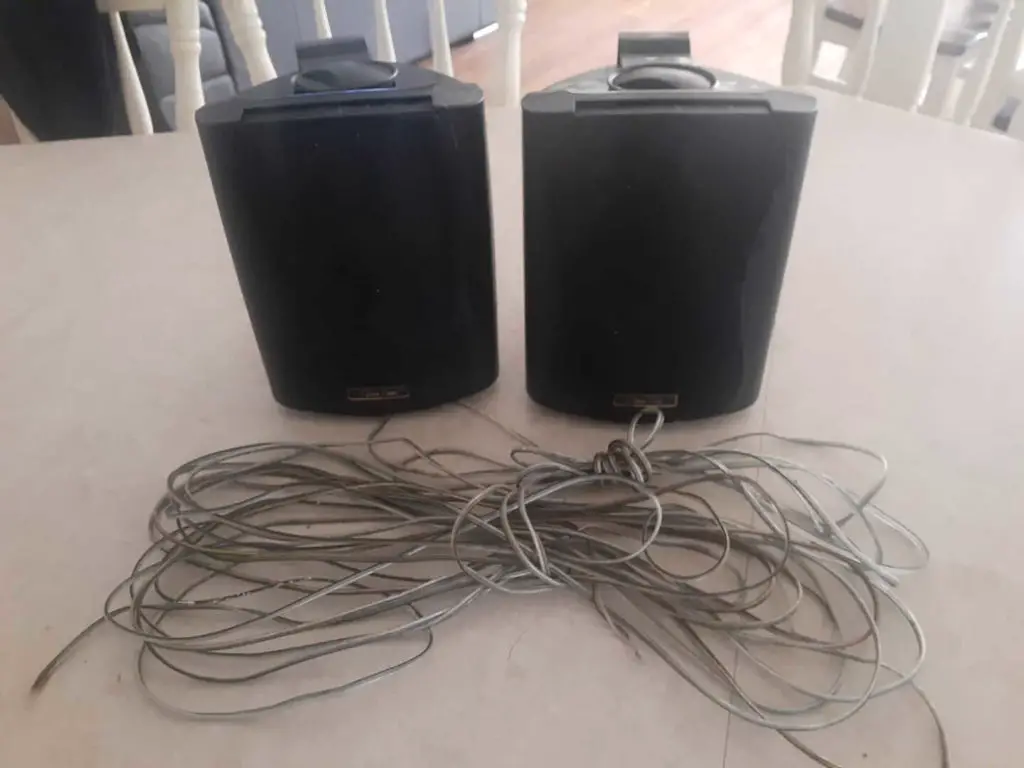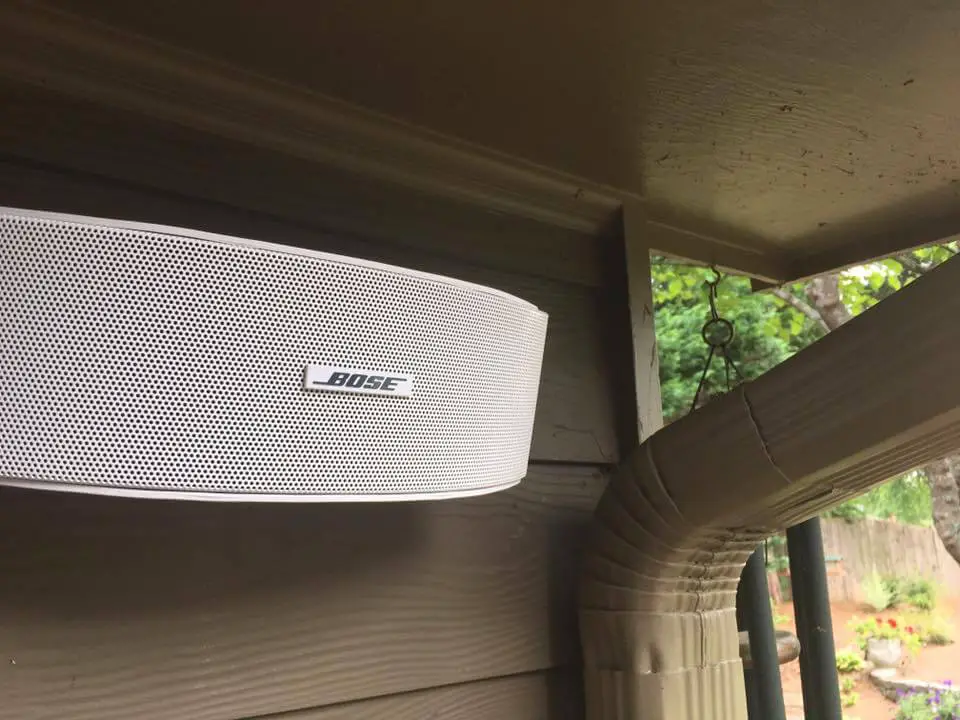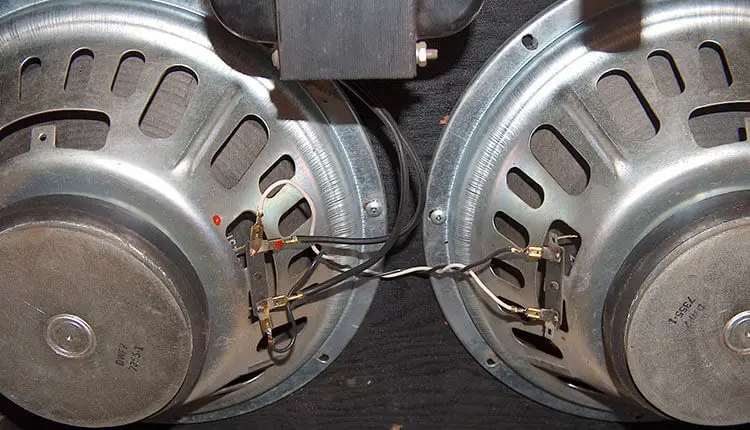We are all into some backyard BBQ parties from time to time, or you may be someone who likes to relax outside your crib doing your work on your laptop while listening to music. That being said, there requires caution to keep your speakers and the wires from ruining due to many environmental things. Backward places differ based on people’s houses, and the less the wires are exposed outside, the better.
You may need to reconsider your spacing overall, but regardless, you probably will face your speaker wires getting oxidized if you don’t have the correct wires or haven’t taken any measurements for them. I will discuss keeping your outdoor speaker wires safe as we talk more.
What are the things that oxidize and ruins the outdoor speaker wires?

You probably don’t know why this has happened to your wires. Well, to find out the solution, it is pretty essential to understand the Whys, or you may face the issues over and over again. So, here are a few reasons:
- Weather is, first and foremost, the most apparent reason for it to happen because your device is outdoors. I have seen many who have complained that the metals have started to fall off due to the winter season.
- Maintenance is certainly a priority of having good wires because they need to be cleaned and greased well, or else if they are exposed to wires, then you will notice electrolyte corrosion. The corrosion will end up damaging the entire wire.
- You could be careless even after seeing that the copper inside the cable is exposed. You will eventually see that the colors have started to change as you keep them without fixing them.
- And, lastly, you could probably be using cables that are absolutely unsuitable for outdoors. Like, the CCA cables are a complete No. The cables will overheat and be damaged faster due to summer and moisture.
Often people use speakers with oxidized wires for an extended period without notice. They suddenly start to notice the decline in sound quality and start to blame the speaker system. Well, now you know the reasons.
How to keep outdoor speaker wires from oxidizing?
Now that we have known why speaker wires get damaged, now it is time for us to know how we can combat this issue. Let us discuss some of the simple ways we can keep our outdoor speaker wires from oxidizing.
Install PVC Pipe
If your speakers are away from any environment and are entirely shut off, then there is no chance that it’ll face any form of oxidization through chemicals. So, You could cover your speaker wires with a PVC pipe. It might be a bit costly and hassle, but it could be done if you are listening to your music outdoors frequently.
The procedure will work like a conduit; ensure your wires are buried at least 6 inches or more. And, also make sure that some PVC pipes will differ from each other and others will be the same (PVC Grey and White are the same). Make sure you use suitable glue so that there aren’t any forms of tears.
Use a Self-amalgamating tape
This will count as a temporary solution at best. If you approach this method, then you either need to use other methods or simply get a cable that is suitable for outdoors. If you see an exposed part of the cable where the covering is teared up, and you are seeing the wires (usually copper), then for a temporary solution, you could simply wrap around a self-amalgamating tape.
A self-amalgamating tape is widely used as a way to waterproof and prevent any form of corrosion.
Get Die-electric Grease or similar products

This may be a term for you, but if you keep on using speakers outdoors, then you’ll be familiar with it. Die-electric grease is a type of grease which is waterproof and provides protection in terms of electrical conductivity and corrosion.
It can be used for any form of electrical connection. Whether it is a plug, wire, or socket, if the grease is applied correctly, your devices will be protected from mixing with unwanted chemicals and water. So, if you notice any form of micro-tears or a fade in colors, then you could use the grease.
You may also find sprays that are equivalent to die-electric grease. Get one that is convenient for you.
Note: I suggest you always use Die-electric grease in your other electrical devices as it’ll provide protection as well as prolong the device’s life span.
Strip the Speaker Wire
This is when you see that the oxidized part of the wire is unfixable and is on the brink of spreading rust to your whole wire system.
- You will require a wire cutter. Where you will cut the vulnerable wire and leave the good part where you will work on
- Then take the wire stripper, where you will expose the copper part to which you will attach the head.
- The head can be a 3.5 mm jack, an adapter, or a banana plug, but make sure you have the proper grounding on it.
Note: It’s a temporary solution as this activity will be recurring for you since you have to do the same work again since your cables are not outdoor-proof. Better to get the change sooner.
Get Banana Plugs after stripping the speaker wire or remove the head
After stripping your speaker wire or simply if you need to attach a new wire to the speaker, then I recommend you get one with banana plugs or attach them. The reason I have mentioned Banana plugs is to add significance to their usage.
It’ll not only make your life more accessible with each connection along with a sleeker look but also protect the wire’s bottom end from corrosion and damage.
Note: No, Banana Plugs don’t improve the sound quality of your music.
Pre-caution: What are the criteria to fill in to get the best outdoor speaker wire?

Here are a couple of things you should keep at the back of your mind when purchasing a speaker wire.
Direct burial Speaker Cable
A direct burial speaker cable is the best option to save yourself from your wires corroding or oxide. Evidently, there won’t be any possibility of getting ruined. There won’t be any sort of exposure to sunlight, debris, or water. Usually, CL2 wires are direct burial cables. These wires have a low gauge and are prone to provide clean sound. It is meant to be underground through a pipe, so these cables are aligned with the PVC Pipe part, as I have explained above.
Gauge Size and distance of the wire
Your priority should be to keep the length of the cable as less as possible in the outdoor environment because the chances of oxidization will only increase. For that, you need to have a clear idea of the gauge size and distance of the wire.
Guage: For the best quality, you are to get a wire which is around 12-14 Guages (AWG)
Distance: For 12-14, it is better to get cables around 100 feet worth, and for 16 or more, it should be around 80 feet mark.
Note: AWG is American Wire Guage
Frequently Asked Questions
What are CL2 and CL3 wires?
CL2 cables are those that go in accordance with fire policies and are recommended to be used inside the walls of a home. On the other hand, a CL3 wire is capable of handling double of its voltage capacity. CL2 can withstand up to 150 volts, while CL3 can withstand 300 volts.
Which wire oxidizes faster, copper or silver?
Copper oxidizes faster than silver. That’s why concern regarding corrosion and oxidization arises.
What to do if your speaker wire has turned green?
Your speaker wire will usually turn green if it gets exposed to sunlight. The air gets exposed to the environment and starts to oxidize; firstly, the color becomes black then it turns green.
Wrap Up!
Thus, I hope I have tried to make sense of this common issue for all outdoor speaker users. Anyone who isn’t bothered about this problem either has things sorted well or simply is unaware of the decline in sound quality they are experiencing. My goal was to enlighten you on this problem, as you probably have been unaware of this issue, but you are clearly noticing that your sound quality is day by day degrading.
Hence, I hope to have given you a basic concept in knowing why the outdoor speaker wire oxidizes and what to do when it happens.
